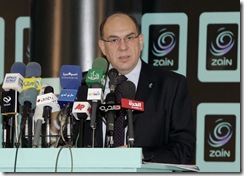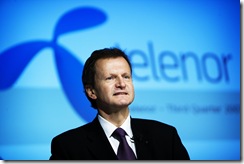UAE operator Du this week announced that the company had made a net profit of AED 31 million (US$8.45 million) for the three months to end-September, its first net profit since the company started trading in February 2007 and a year ahead of the financial plan announced during the IPO. 
Total revenues exceeded AED 1 billion during the quarter for the first time, an increase of 157 per cent year-on-year to AED 1.06 billion. Revenue growth was attributed primarily to continued strong expansion in mobile revenues from new subscribers and increased international inbound roaming. In Q3 2008 Du recorded revenues from mobile subscribers amounting to AED 819 million, an increase of 233 per cent year-on-year and 22 per cent quarter-on-quarter.
Gross margin amounted to 63 per cent, up from 53 per cent in Q3 2007. EBITDA stood at AED 101 million, for the quarter, up from a loss of AED 186 million in Q3 2007
Du reported that it added 453,000 subscribers during the quarter to total 2.671 million at the end of September, with the number of active users reaching 2.07 million, up impressively from 659,000 in the same period last year.
Fixed-line subscribers reached 248,000, an increase of 30,000 in the quarter.
“Achieving net profit in just 19 months of operation is a very significant milestone in Du’s history,” said Osman Sultan, Du CEO. “This is all the more significant considering we entered a market with such a high level of penetration.”
Fixed line revenue accounted for AED 212 million in the quarter, a 54 per cent year-on-year increase and two per cent growth quarter-on-quarter, reflecting seasonality while broadcasting revenues remained stable in the period in line with forecasts.
Capital expenditure continued in the period, with a total of AED 347 million being invested into the development of Du’s fixed and mobile networks in the UAE.







